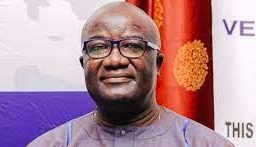By Sulaiman Aruna Sesay
The electoral process in any democracy is a complex and often daunting venture. It requires the coordination of various stakeholders, including electoral commissions and ad-hoc staff, to ensure a successful outcome. It is, therefore, quite disheartening to learn that the Electoral Commission of Sierra Leone (ECSL) has failed to meet its obligations to thousands of ad-hoc staff for their work during the June 2023 General Elections.
The story of this neglect is not particularly new in Sierra Leone. It has become a recurring pattern that comes to light in every election cycle. Ad-hoc staff, who are recruited to assist the ECSL in polling stations across the country, are often left to suffer due to the commission’s inability to fulfill its responsibilities.
For many ad-hoc staff, their experience during the elections was anything but positive. They worked long hours and endured harsh conditions, often without proper compensation or support from the ECSL. Some have complained of hostile environments, inadequate training, and lack of communication from the commission.
In a country where the economy remains weak, and unemployment is rampant, the failure of the ECSL to pay these workers is an enormous blow to their livelihoods. These individuals, who were instrumental in facilitating the electoral process, are now left to suffer in silence, abandoned by the very commission they served.
The situation highlights a much larger issue in Sierra Leone: a lack of accountability and transparency in government institutions. The failure of the ECSL to meet its obligations to ad-hoc staff is symptomatic of its inability to manage the electoral process effectively. Despite UNDP funding intervention, it seems like wasted effort. It raises questions about the overall governance of the country and the willingness of government officials to take responsibility for their actions.
While it is commendable that the ECSL has taken steps to improve the electoral process, the neglect of ad-hoc staff is a stain on the commission’s reputation. The commission must demonstrate a commitment to accountability and transparency, starting with timely payments to ad-hoc staff. The government must also recognize the importance of electoral processes and adequately fund necessary institutions to ensure that the electoral process is robust, fair, and transparent. It is only then that Sierra Leone can hope for an effective electoral process that meets international standards and restores public trust in the country’s democracy.











